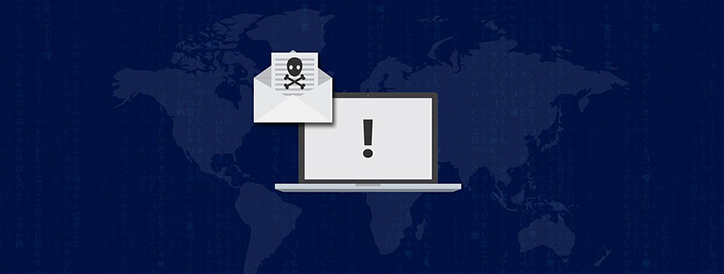There is a lot for businesses to worry about. You have your supply chain, you have costs, you have changing laws, customer complaints, customer acquisition, marketing, accounting, and so much more. Yet, on this already filled plate of yours, you need to make room for another main dish: security. Your company must prioritise its security and build it into its very foundation. Without this approach, you could lose your entire company in a day. Even in one of the best case scenarios you still lose customer trust and potentially a lot of sales.
One such threat that is particularly dangerous and is a risk for all business types is ransomware.
What is Ransomware?
Ransomware is a malware virus that is accidentally downloaded to a computer, often through a phishing email. It can infect your company if you or an employee accidentally downloads it to a main computer connected to your servers, though that isn’t the only way it can hold your data ransom.
Ransomware, which you can learn more about on www.mcafee.com, is one of the worst attacks that can happen. Your data and entire company is held at a standstill unless you pay your hacker their price. If you cannot or refuse to, they could very likely delete everything you have. Try getting back up and running without that data.
How Can Your Business Avoid Ransomware?
To protect your business from ransomware a few key steps to take include:
1. Know What it Is
Knowing what it is and how it can infect your computer is the very first step all companies need to make.
2. Know How to Detect Phishing Scam
Phishing scams are one of the most popular methods for hackers to infect your servers with ransomware. Learn how to detect a phishing scam and make it a habit for both you and your employees to check every unexpected email for suspicious activity and double check for fraudulent links.
3. Improve Each Employees’ Digital Security
Everyone working for you should go through their own personal security risks and fix them. This means deleting old accounts, making every password unique and complicated, installing anti-virus software, and so on.
4. Keep an Offline Backup
Keep your company’s most essential information backed up offline. This can make all the difference between going out of business and taking steps backwards. Accounting information, customer and supplier information, and other key bits of data that are essential to your operations should be backed up regularly. This can save you from a major setback should you lose all your online data or experience a hack that clears your sensitive information. Even saving on a hard drive, for example, can give you peace of mind that you’ve done all you can to prevent your data being lost forever.
The easiest way for hackers to attack your system and hold your data ransom is through a poorly trained workforce who cannot see and determine security threats. By knowing how it can happen and training your employees to prevent it from happening you reduce the risk of attack, substantially. Can hackers still get in? Of course, but so long as you don’t accidentally download the virus straight to your computer their jobs will be a lot harder.

